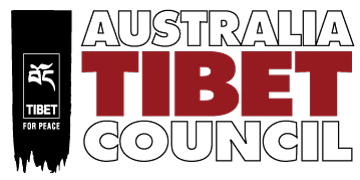STOP FORCED LABOUR IN TIBET
Under the guise of ‘poverty alleviation’ the Chinese Government has been operating forced labour programs in Tibet for years – and now the world is finally taking notice.
At the May G7 meeting in Hiroshima, Japan, the G7 stated in their communique that they, ‘will keep voicing our concerns about the human rights situation in China, including in Tibet and Xinjiang where forced labour is of major concern to us.’
The Chinese Government is currently being investigated by the UN for forced labour in Tibet [UN Ref.: AL CHN 14/2022]. The UN has expressed concern that Tibetans are being forced to leave sustainable and traditional livelihoods, such as wool and dairy production, to work in low-paid, low-skilled work in manufacturing and construction in China.
Furthermore, the Chinese Government is forcing Tibetans into ‘vocational training centres’, which focus less on developing professional skills and more on cultural and political indoctrination in a militarised environment.
UN experts found that Tibetans in the program are reportedly prevented from using Tibetan language and not allowed to practise Tibetan Buddhism, as the Chinese authorities consider both “obstacles to poverty alleviation”.
Contrary to the program’s purported focus on improving living conditions, the UN has said that the labour transfer program could further impoverish Tibetans.
Take Action! Contact your member of Parliament today to ensure that no goods made with Tibetan forced labour are able to be imported into Australia.
ATC calls on the Australian Government to strengthen our laws and to pass the upcoming amendment to the Customs Act to ban the import of goods produced by forced labour into Australia, when this comes before the houses of Parliament.
Campaign against Tibetan forced labour timeline:
In 2019 ATC Published the report: “An Iron Fist in a Green Glove; Emptying Pastoral Tibet with China’s National Parks” highlighting the forced removal of Tibetan Nomads from their lands into Chinese Government purpose-built towns where they were then forced into ‘poverty alleviation’ programs.
2021 saw ATC make a submission about forced labour in Tibet to the “Inquiry into the Customs Amendment (Banning Goods Produced by Uyghur Forced Labour) Bill 2020”
What was to come next was the passing of the amendment through the House of Representatives – but unfortunately, this did not occur before the 2022 Federal election, and so the amendment bill has remained in limbo.
Until 2023;
In 2020, scholar Adrian Zenz published a report documenting a large-scale program in the Tibet Autonomous Region—which spans roughly half of Tibet—that pushed over half a million rural Tibetans off their land and into military-style training centres in just the first seven months of 2020.
On 23rd August 2021, Senator Patrick introduced the amended Customs Amendment bill to stop the importation of goods made with forced labour. Senator Patrick’s amendment is aimed at providing Customs with the power and resources to stop products made in whole or part using forced labour from entering Australia.
The amendment was passed through the Senate on that day!
Now, in 2023 the efforts of Tibet supporters globally, who have spent years pushing this issue have begun to pay off as forced labour in Tibet is finally getting the attention it deserves with a UN investigation.
As well as the attention of G7 leaders at the May 2023 G7 meeting.
